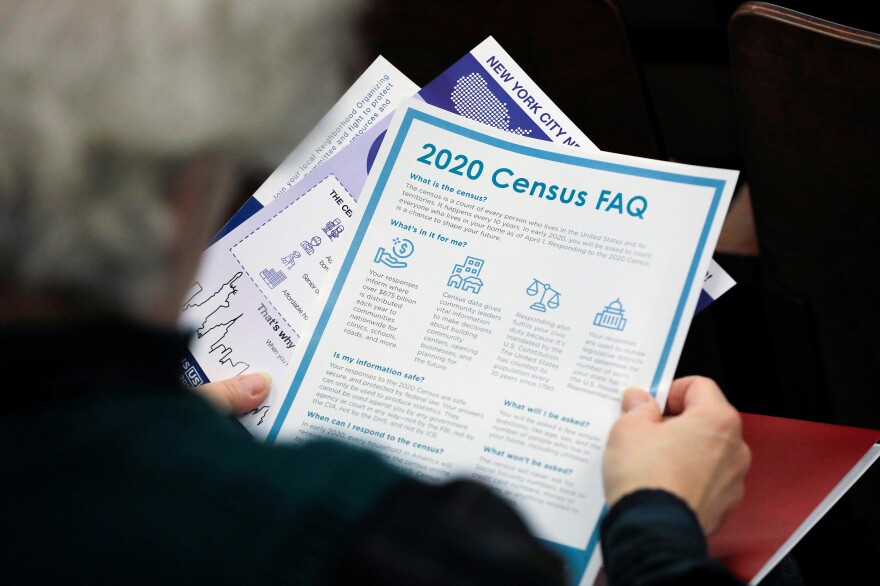Updated January 5, 2022 at 6:00 AM ET
How much federal money will your community get this new year?
It depends in part on how many residents were counted in the census. The once-a-decade tally of the people living in the U.S. helps guide an estimated $1.5 trillion a year to local communities.
Some communities, however, have been concerned they won't get their fair share for Medicare, Medicaid, schools, roads and other public services for the next decade. For the 2020 census, counting efforts were not only delayed by the coronavirus pandemic, but also cut short by former President Donald Trump's administration, heightening worries of undercounts.
Starting this week, tribal, state and local officials can try to get their census results corrected through what the Census Bureau calls its Count Question Resolution program. While it would not change the state numbers that have already been used to reallocate congressional seats and Electoral College votes or the data used to redraw voting maps, it could provide a limited remedy to some communities who want to challenge their official population counts.
The bureau is also expected to roll out details in the coming months about other ways to contest the data it's producing after an especially messy census, while at least one major city is considering taking the bureau to court.
How the Count Question Resolution program works
From now through June 2023, the highest officials of tribal, state and local governments can ask the bureau to double-check for any errors in processing data or setting borders that may have misplaced homes.
For the 2010 census, the counts for about 1% of tribal, state and local governments were revised after the bureau uncovered errors through the Count Question Resolution program, which moved some 48,000 addresses to the correct census block and ultimately added 175 housing units and 527 people nationwide.
"One of those things that people don't normally associate with addresses is whether or not in the past 10 years an area has been annexed into a town or city," says Rob McCord, secretary of Maryland's Department of Planning, who notes that his state has not ruled out challenging its numbers. "Did the Census Bureau pick that up? Did they count these new homes as part of a town or as part of the county?"
Why any Count Question Resolution fix is limited
Still, for any community that was severely undercounted in 2020, any successful challenge will likely be a Band-Aid.
"Unfortunately, what it doesn't do and what it can't do is correct for the systemic problem with the census, which is that we don't count every person living in the United States," says Cara Brumfield, a senior policy analyst at the Georgetown Center on Poverty and Inequality, which has been tracking the bureau's persistent miscounting of certain populations.
Decade after decade, it has undercounted Black people, Latinos, Native Americans, renters and children under 5. And a recent study by the Urban Institute suggests the 2020 census likely undercounted all of those groups at rates higher than a decade ago, while overcounting people who identified as white and not Latino. The bureau is expected to release its official over- and undercount estimates by the end of March.
"Addressing those inequities is paramount, but that's going to be the work that needs to be done over the coming years between now and 2030," adds Brumfield, highlighting the importance of improving ways to encourage households to participate in the next national head count.
Other ways to challenge the Census Bureau's data
In Detroit — where tens of thousands of residents may not have been counted according to a study released last month by researchers at the University of Michigan and Wayne State University, who cite NPR's reporting — local officials say they're skeptical that the bureau's Count Question Resolution program can address their city's potential undercount.
"Hopefully, they will have a means to correct it," said Detroit Mayor Mike Duggan, a Democrat, during a news conference in December. "And if they don't, we're going to go to federal court, and we got a strong case."
The bureau is trying to prepare for cases from other government officials after a tumultuous census. It has proposed a new program designed for college and prison towns to challenge their census results. And later this year, it's expected to announce how its new set of population estimates can be challenged, too.
Copyright 2022 NPR. To see more, visit https://www.npr.org.



